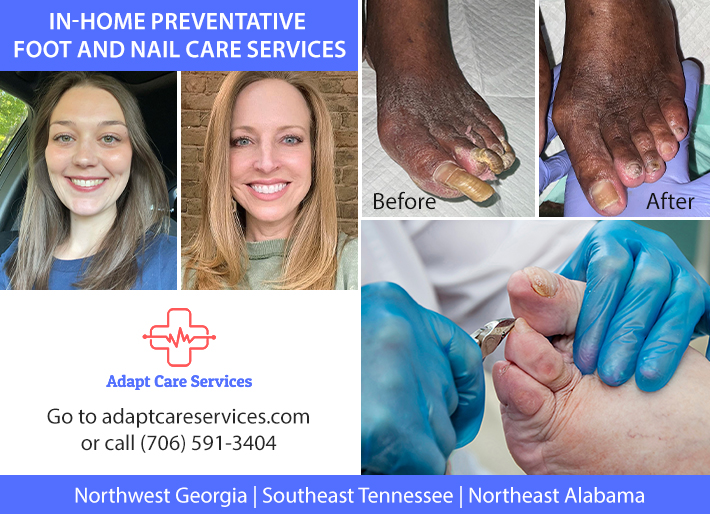
Menopause, mammograms and massive hormonal shifts. As women approach midlife (commonly described as between 40 and 65 years of age), there comes with it a new set of unique challenges.
At an age where many women are active caregivers and at the peak of their career, this can be a difficult time to be going through the emotional and physical changes that come with menopause. But for most women, getting older doesn’t mean their health has to take a downward spiral.
“It’s never too late to adopt healthier habits,” said Dr. Kristin Ray, who sees patients at Atrium Health Floyd Primary Care Family Medicine at 28 John Davenport Drive, Rome.
“While no one can turn back the clock, making small changes can play a role in decreasing your risk for cardiovascular disease, hypertension and obesity,” she added.
Ray has some advice for things you can do to maintain your overall health:
- Get moving. A body in motion stays in motion. If you’ve led a fairly sedentary lifestyle, now is a great time to find an activity that you enjoy. Taking small steps toward a more active lifestyle, like taking the stairs instead of the elevator or parking further from an entrance to get in more steps in the parking lot will benefit your body. Aim for at least 30 minutes per day and work your way up. Even those who have health- or age-related limitations, such as arthritis or osteoporosis, can benefit from modified, low-impact exercise—so talk to your doctor about activities that are appropriate for you.
-
Moderation is key when it comes to a balanced diet. While the right diet for you may depend on your specific restrictions or health needs, most people benefit from a diet rich in fruits and vegetables, plant-based or lean animal protein, heart-healthy fats and fiber-rich grains. Your doctor will be able to recommend a plan that is right for you based on your current health status.
-
Have regular checkups and get screened. Prior to midlife, you should attend annual checkups during which routine blood work and a pelvic exam are standard procedure. As you enter midlife, additional health screenings like mammograms, colonoscopies and bone density screenings might be on your radar. Your doctor can recommend when and how often you’ll need them based on your personal medical and family history.
-
Know your numbers. Knowledge is power. That’s why knowing your numbers – blood pressure, BMI, triglycerides and cholesterol, just to name a few – is a valuable insight into the current state of your health. If it’s been a while since you’ve had these tests, reach out to your doctor to get started.
- Manage stress levels. Chronic stress wreaks havoc on a person’s physical and emotional well-being. Take time for yourself to relax and unwind, whether that means indulging in a good book, enjoying a workout or meditating. A good night’s rest is important for stress management, and sleep disturbances are a common complaint in midlife, so be sure to mention this to your doctor to discuss management options. If you are experiencing stress not managed with lifestyle changes don’t be afraid to reach out for professional help if you need it.













